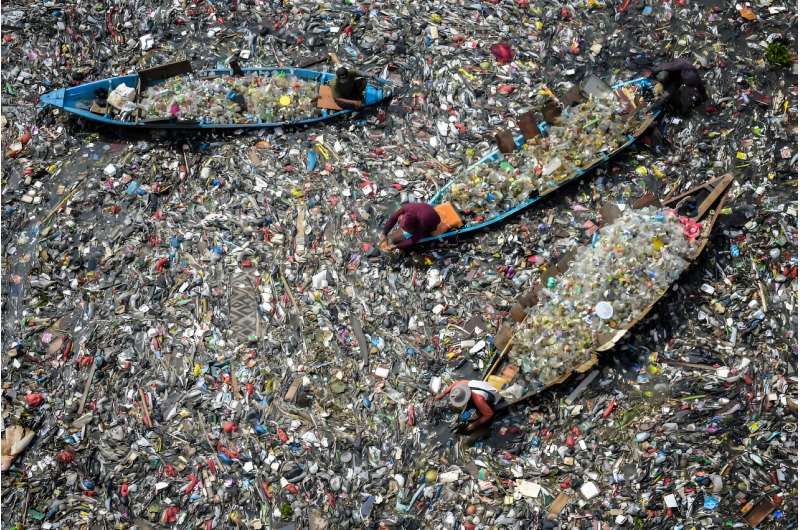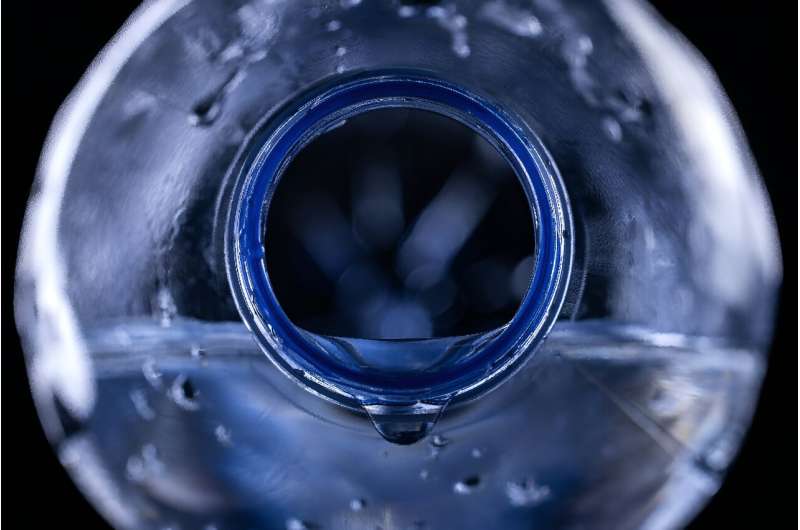
Negotiators hope to agree the world’s first binding treaty on plastic pollution this year.
The crucial talks on the world’s first binding treaty on plastic pollution have been going on for months. Experts are meeting in Bangkok to discuss financing options and problematic plastics.
The four-day meeting is a largely technical stopover on the way to the final negotiations at the end of November in Busan, South Korea.
There, countries hope to conclude a potentially groundbreaking agreement to combat the gigantic problem of plastic pollution.
The scale of this problem is almost unprecedented: microplastics have been found in the deepest ocean trenches, on the highest mountain peaks, in clouds and even in breast milk.
According to the Organisation for Economic Co-operation and Development (OECD), plastics production has doubled in 20 years and, at current rates, could triple by 2060.
Nevertheless, more than 90 percent of plastic is not recycled; much of it ends up in nature or in landfills.
Negotiators have already met four times to discuss an agreement that could include production caps, uniform rules for recycling and even bans on certain plastics or chemical components.
However, there are still significant differences of opinion, including over whether the treaty will be adopted by consensus or by majority vote.
Other points of contention include whether plastic production will be addressed, Eirik Lindebjerg, head of global plastics policy at WWF, told AFP.
“Is it possible to talk about production, or does the value chain only start after the plastic products are manufactured? And then if we can regulate production… is there a cap or a reduction target? What measures are those?” he asked.
“It was a very controversial topic.”
Environmental groups have long called for the treaty to include restrictions on new plastics, and dozens of countries calling themselves the “Coalition of High Ambition” support this position.
They may now have a powerful ally in the United States, which reportedly supports some production restrictions.
Environmental groups welcomed the change of course, but Lindebjerg warned that it was not yet clear whether Washington would support binding caps or weaker voluntary restrictions.

Plastics production has doubled in 20 years and is expected to continue to grow.
“Unresolved issues”
Another point of contention is the question of how binding the agreement will be.
Some countries want measures such as a uniform timetable for phasing out certain plastics, while others favor vague wording that would leave it up to individual countries to decide how and when to regulate.
And as with the climate negotiations, the financing of the implementation of the agreements remains highly controversial.
“Some countries want money and other countries don’t want to give money, quite simply,” said Lindebjerg.
Two expert groups are meeting in Bangkok. One is focusing on financing, including technical details on waste management systems and the implementation of the polluter pays principle.
The second group will focus on a framework and criteria for chemicals, plastic materials and plastic products that could be eligible for bans or reductions under the Treaty.
The meetings are advisory sessions held behind closed doors, much to the dismay of some environmental groups and industry.
“There are still many unanswered questions,” warned Chris Jahn, council secretary of the International Council of Chemical Associations, which represents the global chemical industry.
The group opposes formulations that would regulate chemicals or limit plastic production.
“Plastics are indispensable if the world is to achieve its goals for sustainable development and climate change,” said Jahn, pointing to possible uses ranging from solar energy to food preservation.
The American Chemistry Council warned last week that supporting U.S. production caps was a “betrayal” of U.S. manufacturing and put jobs at risk.
While the industry supports efforts to encourage the reuse of plastics and new designs that make recycling easier, Jahn said, they would also pass regulations that would make manufacturers pay for plastic pollution.
And despite the remaining gaps, there is cautious optimism that a viable agreement is possible.
“I think we really are facing a historic opportunity here,” said Lindebjerg.
© 2024 AFP
Quote: Expert meeting before the final talks on the global plastics treaty (24 August 2024), retrieved on 24 August 2024 from https://phys.org/news/2024-08-experts-global-plastic-treaty.html
This document is subject to copyright. Except for the purposes of private study or research, no part of it may be reproduced without written permission. The contents are for information purposes only.





